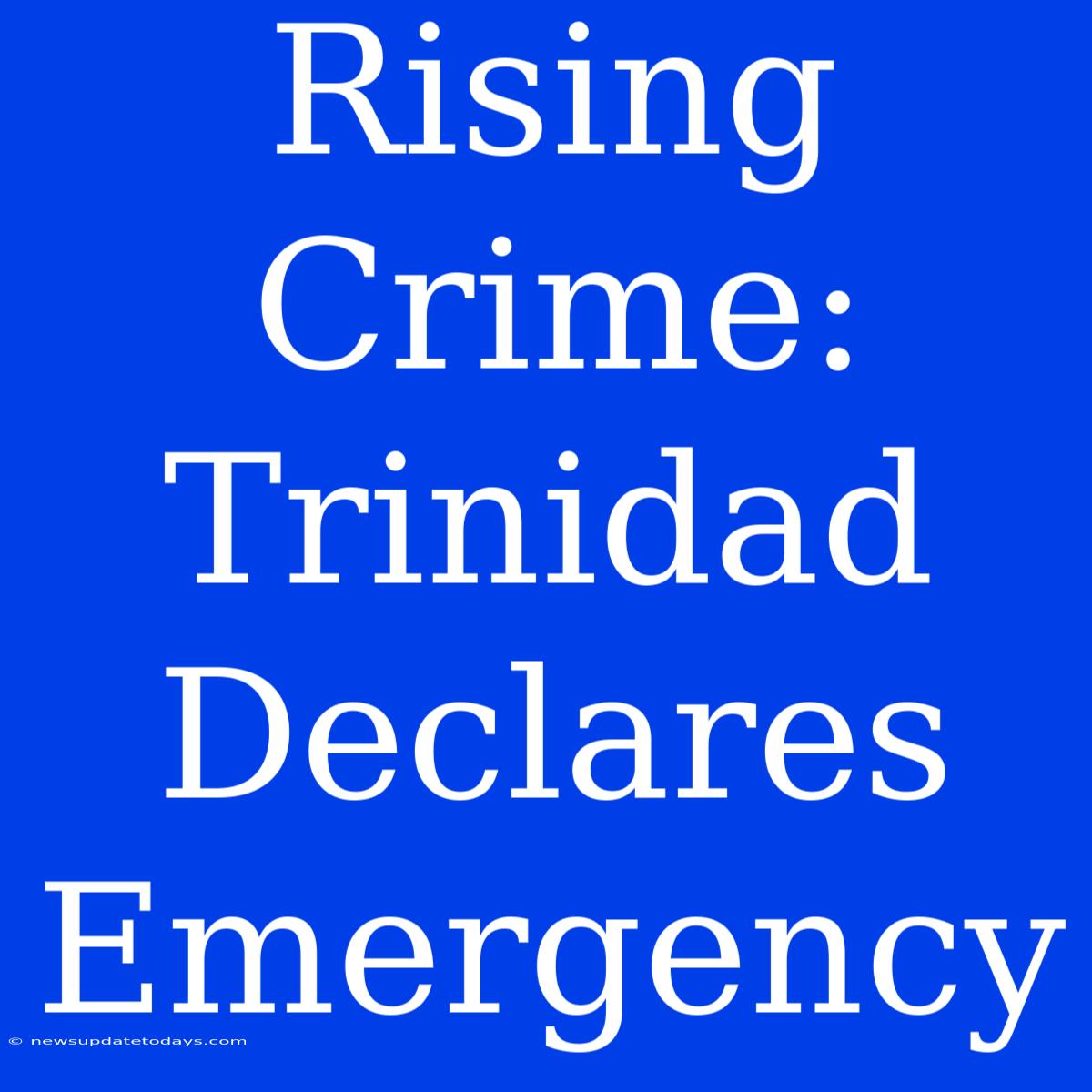Rising Crime: Trinidad Declares a State of Emergency
Trinidad and Tobago is grappling with a surge in crime, prompting the government to declare a state of emergency (SOE). This drastic measure underscores the severity of the situation and the urgent need for decisive action. This article delves into the reasons behind the rising crime rates, the implications of the SOE, and potential long-term solutions.
Understanding the Crime Crisis
The recent spike in homicides, kidnappings, and other violent crimes has left citizens feeling increasingly unsafe. Several factors contribute to this escalating crisis:
-
Gang Violence: Powerful and well-armed gangs are vying for control of territory and resources, leading to frequent shootouts and retaliatory attacks. The proliferation of illegal firearms fuels this violence.
-
Socioeconomic Factors: High unemployment, particularly among young people, coupled with widespread poverty and inequality, creates a breeding ground for crime. Limited opportunities and a lack of hope contribute to desperation and involvement in criminal activities.
-
Weak Law Enforcement: Critics argue that the police force is under-resourced, understaffed, and sometimes lacking in effective strategies to combat organized crime. Corruption allegations further erode public trust.
-
Lack of Community Engagement: A breakdown in community trust and a lack of effective crime prevention programs hinder efforts to address the root causes of crime. Strengthening community ties and fostering a collaborative approach is crucial.
The State of Emergency: A Necessary Evil?
The declaration of a SOE grants the government expanded powers, including the ability to:
-
Curfew Enforcement: Imposing curfews restricts movement and aims to disrupt criminal activities.
-
Increased Police Presence: A heightened police presence on the streets is intended to deter crime and enhance security.
-
Enhanced Surveillance: The use of technology and increased surveillance measures can aid in identifying and apprehending criminals.
-
Detention without Charge: While controversial, the SOE allows for the detention of individuals suspected of involvement in criminal activities without immediate charges. This raises concerns about human rights violations.
While the SOE aims to curb crime in the short term, its long-term effectiveness remains questionable. Many argue that it merely addresses symptoms rather than tackling the underlying causes. Concerns exist about potential abuses of power and the infringement of civil liberties.
Long-Term Solutions: A Multi-pronged Approach
Addressing the crime crisis requires a comprehensive and sustained strategy focusing on several key areas:
-
Investing in Law Enforcement: Strengthening the police force through better training, improved equipment, and increased staffing is crucial. Addressing corruption within the force is equally important.
-
Addressing Socioeconomic Issues: Creating economic opportunities, particularly for young people, through job creation programs, vocational training, and education initiatives is paramount. Addressing income inequality is also essential.
-
Community-Based Initiatives: Investing in community-based programs that promote crime prevention, youth development, and restorative justice is critical. Fostering community engagement and rebuilding trust between citizens and law enforcement is essential.
-
Gun Control: Implementing stricter gun control measures is vital to reducing the availability of illegal firearms. This requires a multi-faceted approach involving border control, stricter penalties for illegal possession, and public awareness campaigns.
The rising crime rate in Trinidad and Tobago presents a significant challenge. While the SOE may provide temporary relief, lasting solutions require a long-term, multi-faceted approach that addresses both the symptoms and the root causes of the problem. Only through a sustained commitment to social, economic, and law enforcement reforms can the country hope to build a safer and more secure future for its citizens.

